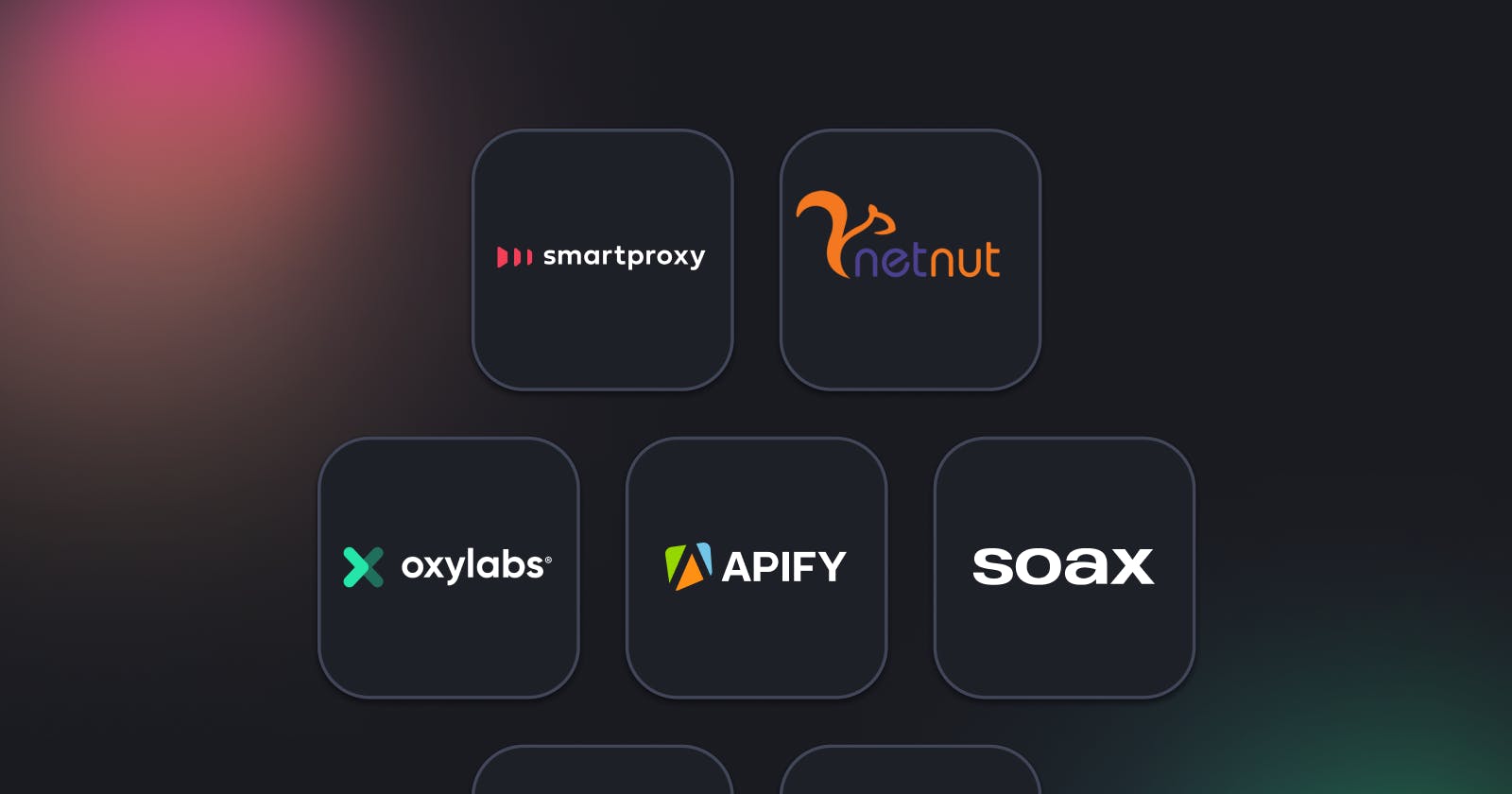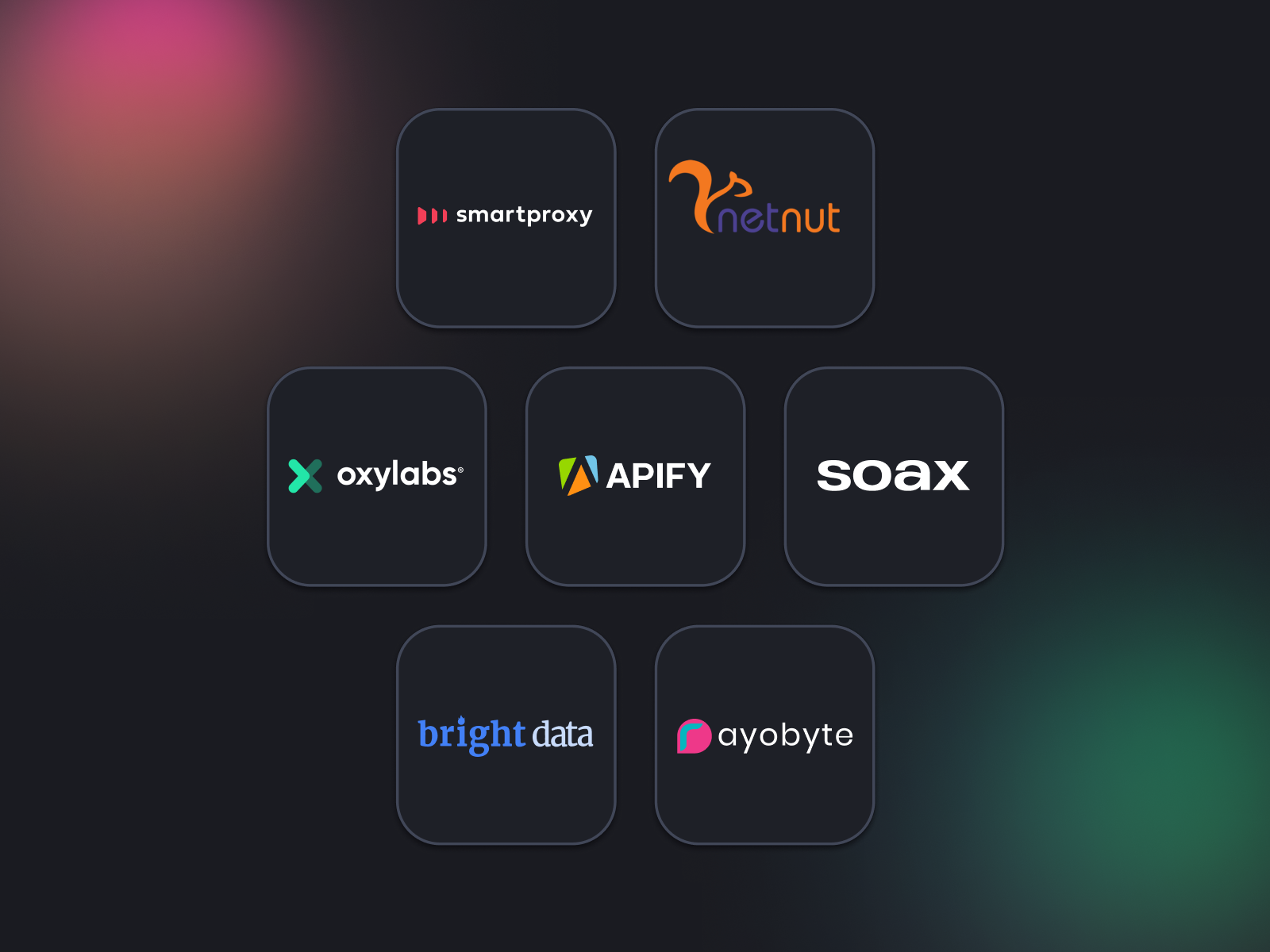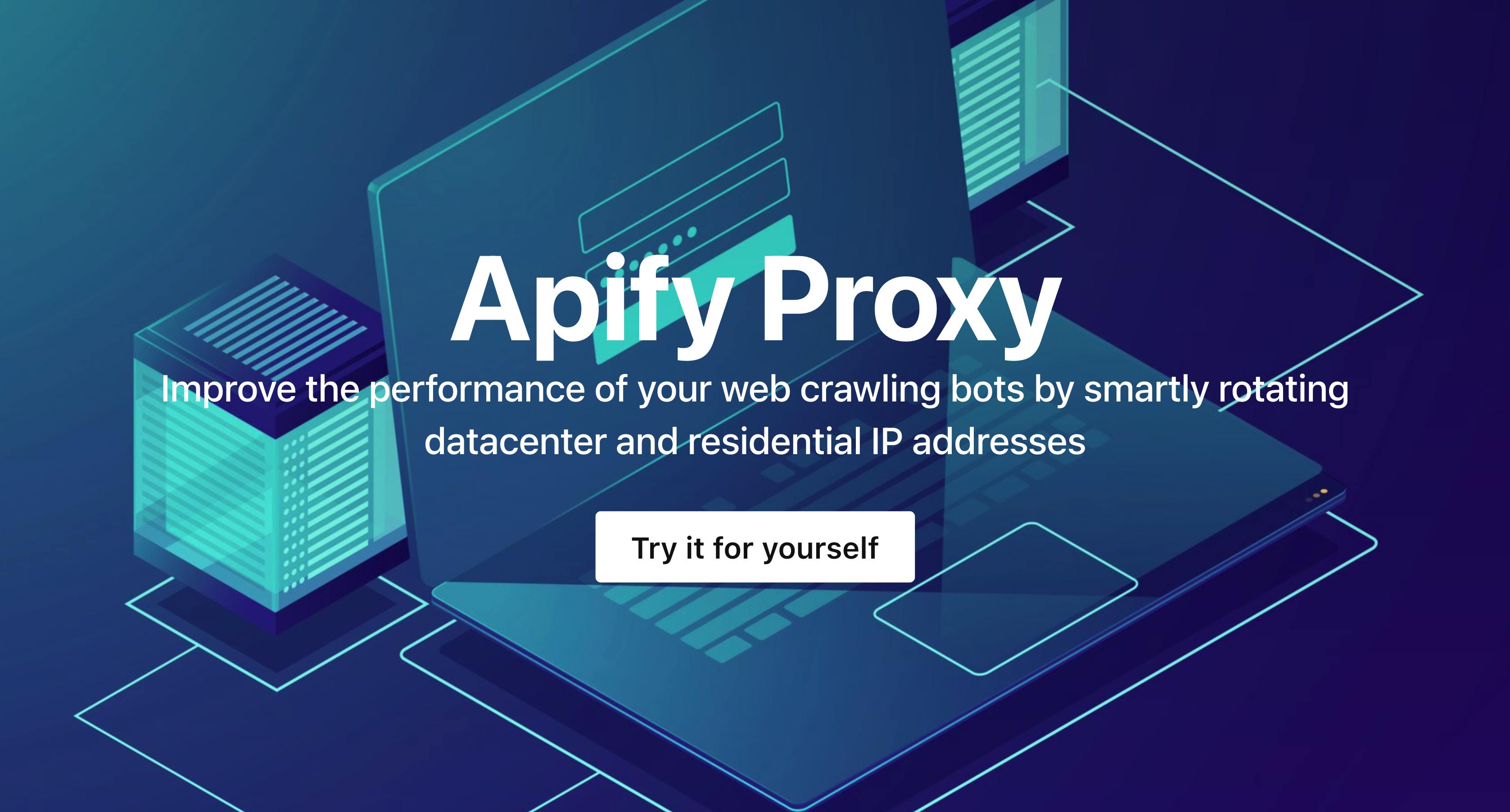The 7 best proxy providers for web scraping in 2023
Improve your web scraping performance with these top 7 proxy providers.
Web scraping is the art of getting bots to emulate user behavior online in order to open websites and retrieve their data. Humans don't request 50 pages per second from one website. So to extract lots of pages from one site without getting blocked, your requests need to look like they're coming from different IP addresses and even from various ISPs and locations around the world. That's why proxies are necessary for successful web scraping.
While proxies are not very expensive, costs can rise rapidly if you're making tens of thousands of requests per day to the same website. Also, proxies have a short life expectancy, and they often stop working, so they need to be constantly monitored and replaced.
If you're thinking of going with free proxies, bear in mind that you get what you pay for. Free proxy lists are usually public, so it's easy for websites to block them right away. Using proxies that have already been burned, blocked, or banned isn't going to do you much good. Paid is almost always better than free, as paid proxies are usually of higher quality and reputation. But which proxy providers are best for web scraping?
Last year we gave you the 7 best proxy scraper services in 2022. This year, armed with data from Proxyway, we've identified the 7 best web scraping proxy providers in 2023 for you to choose from.
🎖 Cheapest residential proxy for small volumes
Winner: Apify
With the lowest starting price ($62.50 for 5 GB) and no time limit on its free plan, Apify is the best provider if you need only a small amount of proxy traffic.
🎖 Best dedicated datacenter & mobile proxies
Winner: Oxylabs
Due to their incredible speed and pool size, Oxylabs comes out on top for dedicated datacenter and mobile proxy performance. Oxylabs has 2 million datacenter proxy IPs and is one of the few mobile proxy networks that borrow IPs from real people rather than dedicated USB dongles. You can also filter IPs by carrier.
🎖 Best residential proxies
Joint winners: Oxylabs and Bright Data
For residential proxies, it's impossible to choose between Oxylabs and Bright Data. Oxylabs has the largest proxy pool in the world, and its residential proxies cover all locations and have precise targeting options. Bright Data provides the most unique IPs of all the providers, with balanced proxy pools, proper residential addresses, and excellent infrastructure (particularly in Europe).
🎖 Cheapest residential proxy for large volumes
Winner: Rayobyte
With its Enterprise Residential Plan providing 1,000 GB for $3,000, Rayobyte wins for the cheapest residential proxy if you need a large amount of proxy traffic.
🎖 Best developer features
Winner: Apify
Apify Proxy itself is neither better nor worse than the proxies of the other providers. What makes it stand out for developers are the other features of Apify. Unlike other providers, which offer a pure proxy solution, Apify is a web scraping platform. It gives developers easy access to serverless computation, data storages, distributed queues, and hundreds of web scraping APIs built by other developers.
It's also deeply integrated with Crawlee, an open-source web scraping library that generates human-like browser fingerprints and manages user sessions to make proxies more efficient and to protect them from burning out, saving developers money in the long run.
FAQs
What is a proxy?
A proxy is a program or server that acts as an intermediary between your device and the web pages you access on the internet. Proxies protect computers from malware and unwanted access from third parties. Proxies also let you bypass geo-location protections by using proxies in a specific country since companies enforce geo-location restrictions to block countries or regions to avoid traffic overload on their website.
What is a web scraping proxy?
In web scraping, proxies are used to disguise the identity of bots accessing a website. Clients forward requests to a proxy server, which delivers the requests to the destination server. The response is returned to the client via the proxy. Proxies obfuscate your online identity and allow you to rotate your IP address to reduce the likelihood of your web scraping activities getting detected and enable you to send more requests to extract the data you need.
What is a datacenter proxy?
Datacenter proxies are a fast and cheap way to mask your real IP address so you can access a website anonymously and bypass web scraping protections. Your request to a website will go through a server in a datacenter, and the target website will see the datacenter's IP address instead of yours.
What is a residential proxy?
Residential proxies use IP addresses assigned by internet service providers to the homes and offices of real users. Unlike datacenter proxies, traffic from residential proxies is indistinguishable from that of legitimate users. This solution allows you to access a larger pool of servers than a datacenter proxy. This makes it a better option when you need a large number of different IP addresses.
Why use a proxy?
The five most common reasons to use a proxy are:
To control and monitor internet access
To enhance privacy
To access blocked websites
To improve speed and save bandwidth
To improve security
How to use a proxy for web scraping?
Web scraping can work around IP address-based blocking by rotating the IP addresses from which they send the requests to target websites. This can be done by using a pool of proxy servers by assigning each request to another proxy server from the pool and thus making it look like a request coming from another user. The proxies can be selected either randomly or in a round-robin fashion. If too many requests are sent from a single proxy in too short a period of time, the proxy might get "burned", which means all further requests from it are blocked. For successful large-scale scraping activities, you need a sufficient pool of proxies and to time the workload to maximize the scraping throughput while burning proxies.



